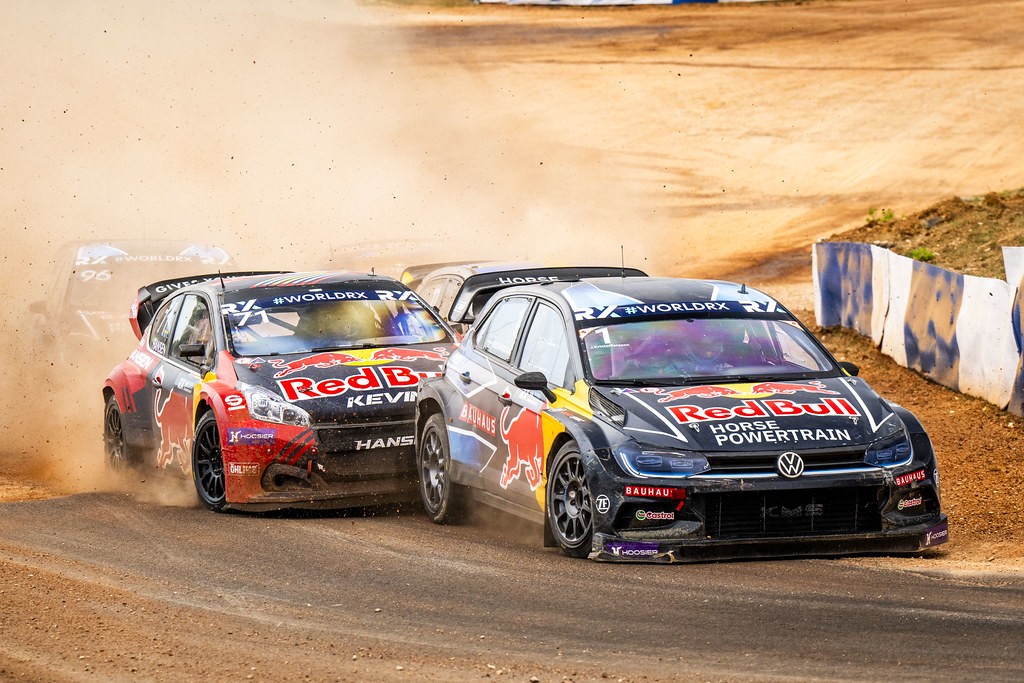El Campeonato Mundial de Rallycross (World RX) ha anunciado un importante cambio en sus reglamentos para la temporada 2024, permitiendo que los vehículos con motores de combustión interna que utilizan combustibles sostenibles compitan junto a vehículos completamente eléctricos. Esta decisión, anunciada tras la reunión más reciente del Consejo Mundial de Deportes de Motor de la FIA en Baku.
El World RX, que adoptó una plataforma completamente eléctrica antes de la temporada 2022, ha experimentado desafíos tanto en términos de tamaño de la parrilla como de diversidad tecnológica. A pesar del impresionante rendimiento y la potencia de los vehículos eléctricos en la categoría RX1e, ha habido una clara demanda de mantener los motores de combustión, especialmente notable en el campeonato Euro RX. Esta decisión parece ser una respuesta a esa demanda, ofreciendo un nuevo formato que podría aumentar la competitividad y el interés en el campeonato.
Para 2024, se admitirá un máximo de 16 coches, y se otorgarán puntos del campeonato en cada carrera de clasificación, semifinal y final. Este cambio en la estructura de puntuación, junto con la eliminación del desafío SuperPole, sugiere un esfuerzo por nivelar el campo de juego y proporcionar una competencia más equitativa y emocionante. Arne Dirks, director gerente de Rallycross Promoter GmbH, enfatizó la expectativa de una emocionante "Batalla de Tecnologías", donde la potencia electrizante de los vehículos eléctricos se enfrentará a la pasión por los coches con motor de combustión.
La transición del World RX a una flota completamente eléctrica fue un paso audaz hacia la sostenibilidad, destacando la importancia de la innovación en el deporte motor. Sin embargo, esta última decisión reconoce que aún hay un lugar para los motores de combustión, especialmente cuando están alimentados por combustibles sostenibles. Esto no solo promueve la diversidad en el campeonato sino que también subraya un enfoque más amplio hacia la sostenibilidad, que no se limita exclusivamente a las soluciones eléctricas.
La temporada 2023 del World RX ha sido tumultuosa, marcada por incidentes como el devastador incendio en Lydden Hill. Este evento, que resultó en la destrucción de los Lancia Delta Evo-E RX de Special ONE Racing, planteó desafíos adicionales y afectó la continuidad de la competencia en algunas rondas. Este tipo de sucesos subraya la importancia de la diversificación y la adaptabilidad en los deportes de motor.
La temporada 2023 del World RX ha sido tumultuosa, marcada por incidentes como el devastador incendio en Lydden Hill. Este evento, que resultó en la destrucción de los Lancia Delta Evo-E RX de Special ONE Racing, planteó desafíos adicionales y afectó la continuidad de la competencia en algunas rondas. Este tipo de sucesos subraya la importancia de la diversificación y la adaptabilidad en los deportes de motor.
Además, el anuncio de Hoosier Racing Tire como único proveedor de neumáticos para todas las categorías de rallycross de la FIA, tras un proceso de licitación, es otro paso hacia la uniformidad y la justa competencia. Reemplaza a Cooper, el proveedor de larga data, y probablemente influirá en la estrategia y el rendimiento de los equipos.

La FIA Toma Control Directo de los Campeonatos Mundial y Europeo de Rallycross
FIA Administrará el Mundial de Rallycross Tras Cambios en la Promoción

Hansen y Kristoffersson dominan en Mettet: Resumen del World RX de Benelux
Hansen y Kristoffersson se llevan la victoria en un fin de semana lleno de acción en el World RX

Victoria de Kristoffersson en Hungría
Tras un desafiante inicio, Johan Kristoffersson se impone en el segundo día del World RX en Hungría

Kristoffersson se impone en el Rallycross de Höljes bajo la lluvia
El piloto sueco supera condiciones adversas y lidera el campeonato.








